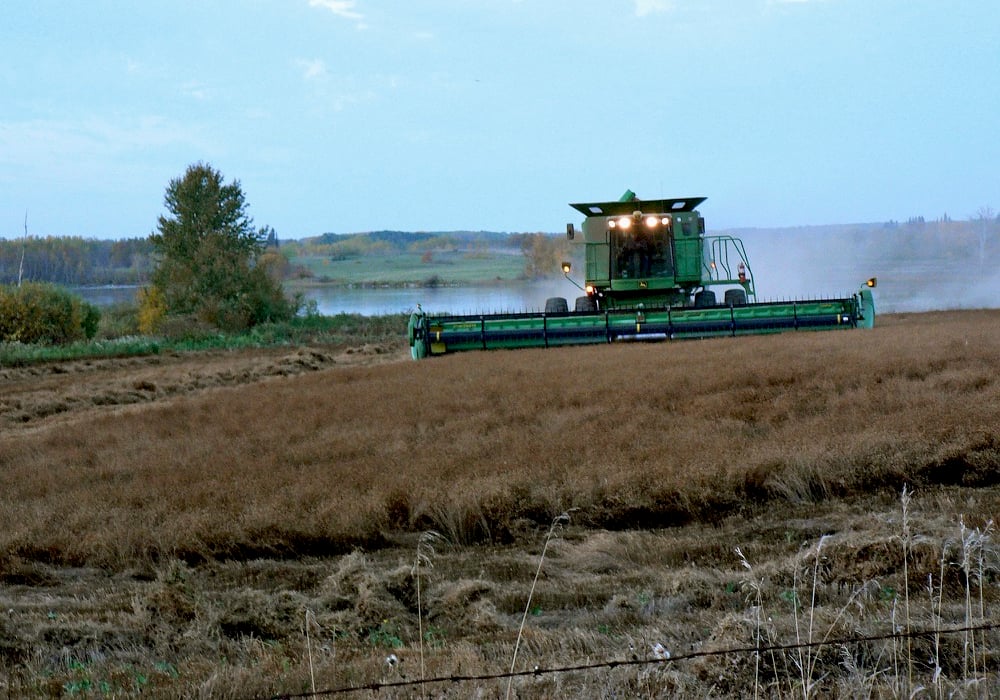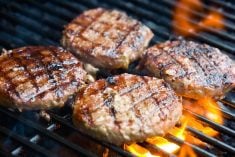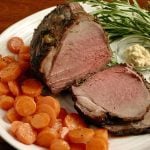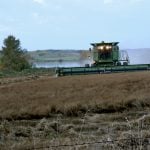London | Reuters — European dairy firms halted production of cheese and butter destined for Russia and Norwegian salmon prices fell, as a wide array of small fresh food producers felt the first impact from Moscow’s tit-for-tat ban on their goods.
Russia stopped imports of most food from the West on Thursday in retaliation for sanctions imposed over Russia’s actions in Ukraine. [Related story]
Roughly 10 per cent of EU agricultural exports go to Russia, worth around 11 billion euros per year, according to European Commission figures.
Read Also

Most of Manitoba harvest wraps up for 2025
Manitoba Agriculture issued its final crop report of 2025, showing the overall provincewide harvest at 97 per cent complete as of Oct. 20. Nearly all major crops have finished combining, with 37 per cent of Manitoba’s sunflowers finished, plus 71 per cent of grain corn and small amounts of soybeans and potatoes left to do.
While Western multinationals were counting on their local manufacturing plants to help them weather the ban, small farmers are not so lucky.
They said trucks bound for Russia were turning around mid-route, 8,000 tonnes of peaches were stranded in northern Greece and fears were spreading about the impact on products ranging from Spanish ham to Scottish mackerel.
Norwegian salmon prices are expected to fall 10 per cent in the next week as a result of Russia’s food sanctions, traders and analysts said Friday, forcing farmers to scramble for new markets at a time when prices are already under pressure.
“It’s important that the producers cut their output next week,” said one exporter, who declined to be named. “When this ban was announced yesterday, it was complete chaos.”
Scotland’s fishing industry also expected to be hit given Russia’s importance as an export market for mackerel. The industry’s main body said it was “extremely concerned”.
Dairy hit
Arla Foods, which says it is Europe’s largest dairy co-operative, stopped production of all goods for the Russian market on Thursday night, it said Friday. The market accounts for one billion Danish krone (US$179.6 million) a year, or 1.3 per cent of Arla’s global annual revenue.
A company spokesman said it was trying to ship output elsewhere or switch to other products destined for other markets. “The immediate challenge is the market shutdown,” said a spokesman. “But there will be after-effects as well.”
Milk prices are likely to come under pressure as companies scramble for new buyers.
In Ireland, a major dairy producer, about 70 million euros of the country’s 230 million euros of food and drink exports to Russia were affected, its food board said.
“It’s the knock-on effect on cheese markets throughout Europe that’s worrying farmers. You take out the biggest export market and that cheese has to go somewhere,” said Sean O’Leary, a dairy farmer in the south of Ireland and Chairman of the Irish Farmers Association’s dairy committee.
“The timing of it is just bad. Milk prices are already falling. Farmers are expanding before EU quotas are ended next year and Russia would have been identified as a growth market.”
Finland’s dairy co-operative Valio said it was planning talks with labour unions concerning 800 jobs. The company produces about 85 per cent of the Finnish exports hit by Russia’s sanctions, Valio said on Friday. “The manufacture of all products for the Russian market was halted on Thursday,” it said, with cheese, butter and milk the most popular items.
The company also said it was looking at how to cut its operations in Russia, where it employs just under 500 staff.
Finnish food exports to Russia totalled 400 million euros last year. Just under 300 million of those fall under the Russian ban, which represents 0.5 percent of total Finnish exports, data from the customs office showed.
Greek peaches, Spanish ham
Greece exported about 160,000 tonnes of fruit to Russia last year worth 180 million euros (US$241 million), according to Greece’s fruit exports association, Incofruit-Hellas.
Christos Yiannakakis, head of an association representing about 5,000 producers in Imathia, a peach-producing region in northern Greece, said they were reluctant to ship to Russia in case they were forced to turn back. As a result, around 8,000 tonnes of peaches are held up in refrigerators in the area.
“Russia is our main market,” Yiannakakis said, adding about 50 to 60 per cent of the region’s peach exports go to Russia.
The producers have already suffered this year from the crisis in Ukraine, its second-biggest market, as well as a global oversupply of peaches and a slight drop in demand. “It (the embargo) will throw our region’s agricultural community into great turmoil,” he said. “It’s a disaster.”
In Spain, where the economy is finally emerging from a long recession, producers of fruit, vegetables and meats — including fine Spanish ham — said they were very worried.
“Any kind of ban on products tends to create excess production and thus an extreme drop in prices. This affects producers big and small, not just exporters,” said Miguel Padilla, head of agriculture and livestock association COAG.
The association is based in the southern region of Murcia, a major producer of fruit and vegetables which exports an annual about 33 million euros directly to Russia, which is a big buyer of peaches, lettuces and cauliflower from Spain.
A large part of some 90 million euros of Murcia exports to Poland, Germany and Netherlands also ends up in Russia, said Padilla, who grows watermelon and broccoli.
“Exporters have told us that some trucks in the EU are turning around right now because their orders have been cancelled,” he said.
The country’s main fish and meat producers, Pescanova and Campofrio will avoid the impact. Russia is not among the main export markets for Pescanova, a source with knowledge of the company’s business said, and Campofrio sold its Russian unit in 2008.
Shopping tourism
The Russian government has said its prohibition on imports doesn’t include foods brought back from other countries by individual Russians travelling in the West.
With St. Petersburg about 200 km from the Finnish border, locals on the Finnish side hope there is a chance that shopping tourism may partly offset the hit from the food sanctions.
“It’s quite possible that shopping will increase here — they have to get their food somehow,” said Reijo Tervo, who runs the Citymarket supermarket in Lappeenranta, a few kilometres from the Russian border.
“We have already seen some people stocking up, mainly on cheese and soya products,” he said.
— Reporting for Reuters by Martinne Geller in London, Rodrigo de Miguel and Robert Hetz in Madrid, Sakari Suoninen in Helsinki, Alistair Smout in Edinburgh, Ole Petter Skonnord in Oslo, Conor Humphries in Dublin and Karolina Tagaris in Athens; writing by Sophie Walker.
















